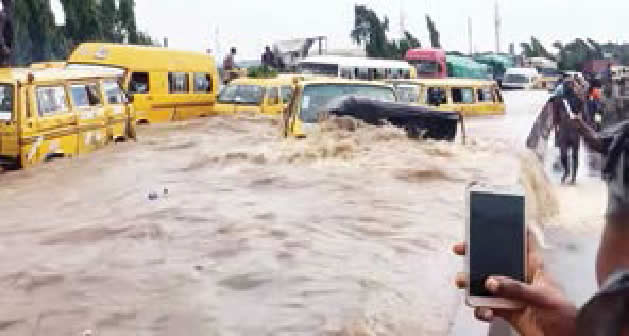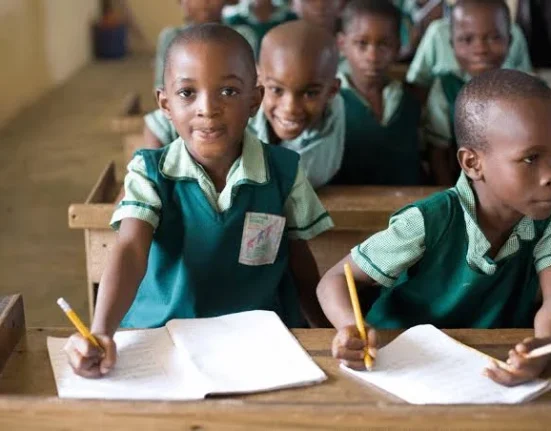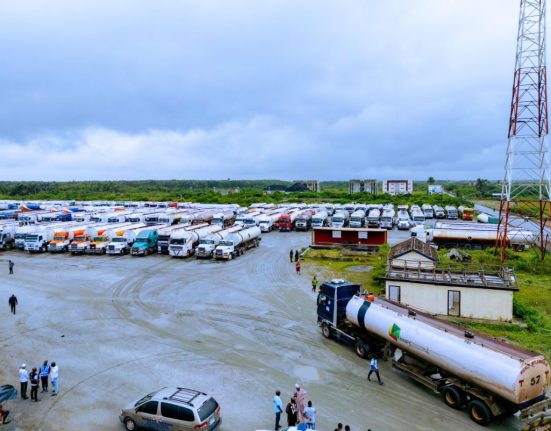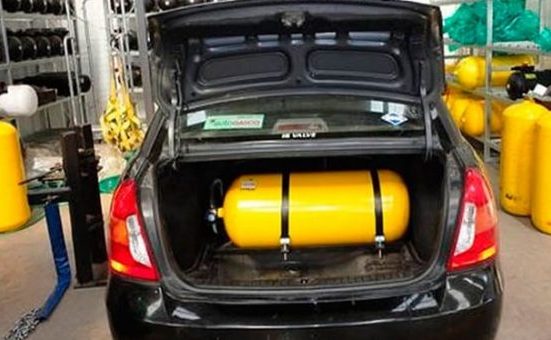The Federal Government has issued a nationwide alert over impending heavy rainfall expected to trigger severe flooding in 19 states and 76 locations from August 5 to August 9, 2025. The warning, released by the National Flood Early Warning Systems Centre under the Federal Ministry of Environment, urges residents and stakeholders to take immediate precautions to mitigate risks.
The alert follows devastating floods in Ogun and Gombe states on Tuesday, with Lagos, Plateau, Anambra, and Delta also reporting significant damage. The affected states include Akwa Ibom, Bauchi, Ebonyi, Cross River, Nasarawa, Benue, Kaduna, Katsina, Kebbi, Kano, Niger, Plateau, Taraba, Jigawa, Yobe, Zamfara, Sokoto, Borno, and Gombe.
Flooding has become an annual crisis in Nigeria, with last year’s disaster affecting 31 states, claiming hundreds of lives, and displacing 1.2 million people. The situation worsened in September 2024 when the Alau Dam collapse in Borno killed at least 150 people and displaced 419,000 others.
This year, floods have already caused widespread destruction. In May, at least 200 people died in Niger State after intense rainfall and a dam collapse submerged communities. Rivers State also recorded 25 deaths after floods and landslides buried homes in Okrika.
The National Emergency Management Agency (NEMA) reports that 191 people have died so far in 2025, with 94 missing and 134,435 affected across 20 states. Niger State recorded the highest fatalities (163), followed by Adamawa (26). Over 48,000 people have been displaced, with 9,499 houses and 9,450 farmlands destroyed.
In response, the National Economic Council approved intervention funds, including N3 billion each for the 36 states and the Federal Capital Territory, alongside allocations to key ministries and NEMA.
Recent Flood Incidents
In Ogun State, heavy rainfall trapped residents and churchgoers at Redemption City, forcing some to use canoes to navigate submerged areas. Gombe reported four deaths from floods and windstorms, with 278 households affected.
Lagos faced severe flash floods, turning streets into rivers in Ikorodu, Lekki, Surulere, and other areas. Traders abandoned markets, and commuters were stranded as drainage systems failed.
Delta State established six internally displaced persons (IDP) camps in flood-prone areas, equipped with medical facilities and security. Meanwhile, Kebbi, Bauchi, Plateau, and Imo states reported significant damage to homes and farmlands.
Preventive Measures
Katsina designated schools as temporary shelters, while Bayelsa credited its flood control efforts, including drainage maintenance, for preventing major disasters. Sokoto and NEMA teams assessed damages in Yabo, Shagari, and Tureta, where hundreds were displaced.
Despite warnings, Kano, Nasarawa, Kaduna, and Benue have not yet recorded major flooding but remain on high alert. Edo State, though unaffected so far, is monitoring communities near the River Niger ahead of expected September rains.
Environmental activists urge governments to prioritize infrastructure upgrades and community sensitization to curb recurring flood disasters. With more rainfall predicted, experts warn that Nigeria’s flooding crisis will persist without long-term solutions.







